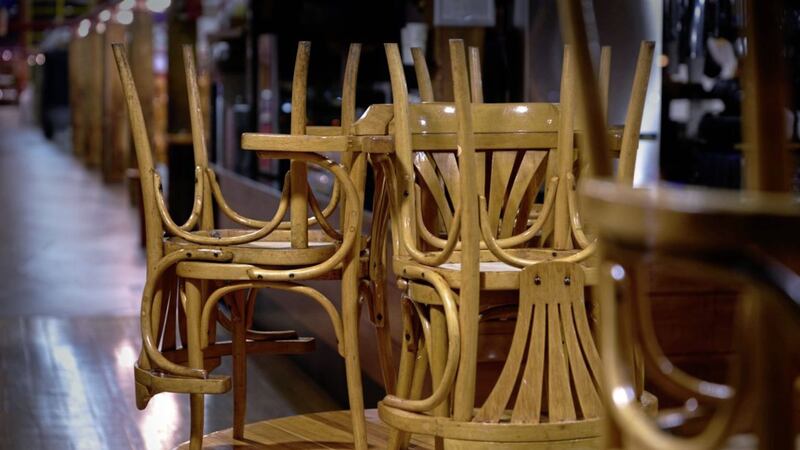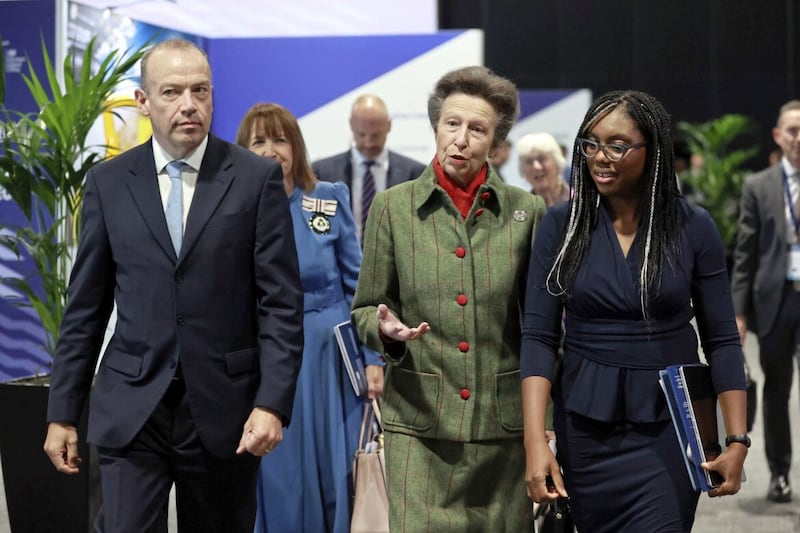TODAY’S global economic dynamic is markedly different to how it looked a generation ago. The way we do business has evolved dramatically with technological developments, social networking, and on-line transactions. The impact of such change will continue to challenge us but will undoubtedly also continue to deliver benefits.
Unfortunately, today change is coming from all directions – Brexit, Covid and climate change. There is certainly plenty in the wider economic environment to disrupt us; but perhaps we need to think about how we derive some of the positives out of those disrupting influences.
BREXIT:
I am certain readers of this column are aware that I have never been a fan of Brexit. Nonetheless, that train has already left the station and so we must now concentrate on making the outcome work for Northern Ireland as best we can. Encouraging the government to get a trade deal with the EU is critical.
Over the weekend the CBI and 71 trade associations and professional bodies representing 190,000 businesses and 7 million employees?called for politicians on both sides to carve a path towards a trade deal. Sectors from automotive to aviation, chemicals to creative industries, and farming and food to pharmaceuticals – are all united: securing a quick trade agreement between the UK and Europe matters greatly for jobs and livelihoods.
A EU-UK trade deal will turbo charge business preparations, increase confidence and allow investors to implement growth plans. It will also help ease the sustainable implementation of the Northern Ireland Protocol. We must remember that amidst all this uncertainty, Northern Ireland is in a unique position.
From January 1, we will be the only part of the UK to continue to benefit from the free movement of goods with the EU. For NI firms, that is such a relief. But companies and policy-makers need to think creatively and innovatively about how Northern Ireland’s place spanning both markets can be used to unlock our full potential.
Today the CBI along with Ibec (our sister organisation in the Republic of Ireland) are holding a joint conference entitled “Business on A Connected Island”. During this on-line conference we shall be joined by EU Commissioner Mairead McGuinness and RTE’s European correspondent Tony Connelly. Chief executives from across the island will be discussing a range of issues that could potentially and positively impact our new situation.
Topics will include: making the Protocol work, all-island skills, finance for all-island investment, connectivity and improving the island’s future resilience to economic shocks. Chief executives up and down this island know that we must make the most of our unique status, we must collaborate. As challenges mount, industry must bring solutions to the table and we must relentlessly focus on improving the economy and quality of life for everyone on this shared island.
COVID
The impact of Covid-19 on our economy and economies around the world cannot be overstated. Last week the IMF predicted that the virus will wreak “lasting damage” on people’s living standards. A 4.4 per cent contraction is predicted for the global economy in 2020 - which we know will result in lost jobs, rising debt, delayed investment, and lower living standards.
Companies across Northern Ireland have demonstrated great agility and adapted by delivering new safety standards, moving to on-line sales, and have shifted employees from office to home working where possible.
Even since the Chancellor made his recent announcement around new support measures for business, things have moved on considerably.
Since Friday we have seen restaurants and the wider hospitality industry in Northern Ireland forced to close their doors once again. Indeed, for some firms that can still remain open, they tell me that the negative impact ripples through to them regardless of staying open. Firms experience dramatic falls in demand when new restrictions or ‘circuit breakers” are alluded to because political statements has a huge influence on wider consumer confidence.
There is no doubt that everyone, including the government are learning as they go. As each day unfolds, we learn more and we are gathering better data. The challenge for politicians now, is to react to new information and the wide range of data available.
For example, we can now get a better understanding of the costs and benefits associated with harsh lockdowns. Consideration must be given to the wider economic costs in terms of lost jobs and livelihoods, the wider health costs when elective surgeries are cancelled, or cancer diagnosis are missed. The social costs such as lost education and isolation must also be taken into consideration. Quite simply policy makers must ensure decisions around lockdown and restrictions are evidence-based.
Trying to ensure that Northern Ireland can build back stronger from the Covid-19 crisis is easier said that done. But we do know that jobs will need to be created and industry will have to be supported to get back on its feet as soon as possible.
Government can do this by trusting in business to provide a Covid safe work environment and allowing business owners and managers to get back to doing what they do best, - providing employment and creating wealth which is used to pay for our public services.
Government support for job creation will continue to be necessary, but job creation and future resilience will be much easier if we invest in the right things – skills, infrastructure, and the green economy.
In summary, it is vital that we use today’s disruptors to lay the foundations for a truly competitive, economically vibrant and low carbon economy which will deliver the fairer, greener and more resilient future that people in Northern Ireland deserve.
Angela McGowan is CBI Northern Ireland director








